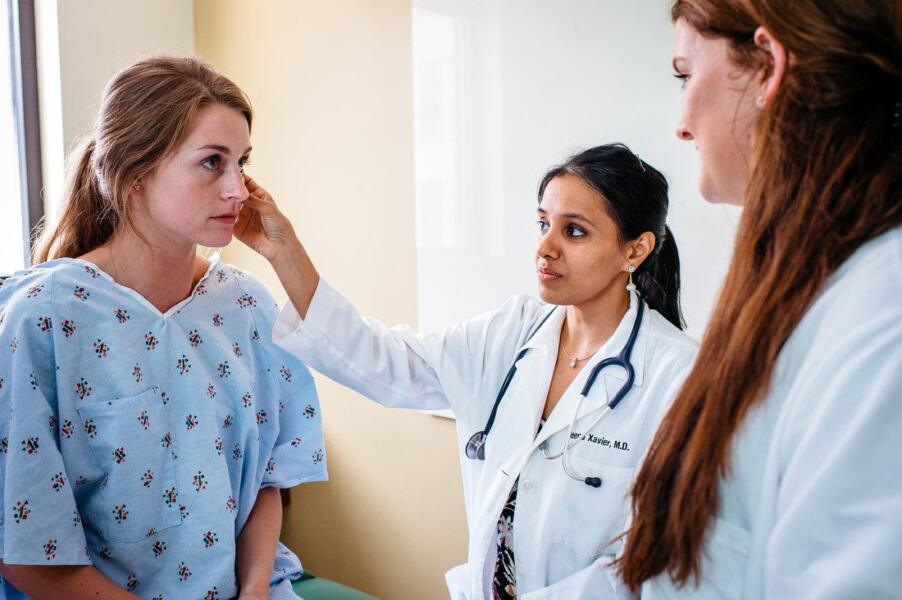Floyd Josephat, EdD, MT(ASCP), ASCLS Education Scientific Assembly Chair
 |
| The CPA program is an advanced-practice program for the medical laboratory science profession with emphasis on the clinical aspects of laboratory medicine. Photo courtesy UAB. |
Sam Cook mentioned about 50 years ago, “A Change is Gonna Come.” Laboratory medicine is also undergoing rapid changes driven by new technologies such as molecular and genomic testing. As new tests develop and become more complex, it is imperative that we prepare graduates to address issues they may encounter as a result of these changes.
Preparing students for the future should be our ultimate goal. This should involve a rigorous curriculum realignment or the addition of signature programs to address future clinical needs. The University of Alabama at Birmingham (UAB) Clinical Laboratory Science program has recognized there is a change coming and is addressing this pressing need by establishing a signature program to embrace the future of the clinical laboratory. The Clinical Laboratory Science program has developed a Clinical Pathologist Assistant (CPA) program to strategically prepare students for these changes.
Program Designed to Deliver Quality Patient Care
The CPA program is an advanced-practice program for the medical laboratory science profession with emphasis on the clinical aspects of laboratory medicine. Currently, professionally-relevant degree options are extremely limited for anyone wishing to continue their education once they have received their entry-level certification to work in an accredited laboratory. Additionally, the practice of laboratory medicine is sub-optimal due to inadequate collaboration among physicians, patients, nurses, and medical laboratory scientists where laboratory testing is concerned. Laboratory testing consists of many over- and under-utilized tests, leading to wasted money and resources and decreased quality of patient care.
Graduates of the CPA program would alleviate some of these communication problems by their ability to synthesize clinical and laboratory data and provide a narrative interpretation to help guide and support the decision-making process by the healthcare team, including patients, based upon medical evidence. The CPA program at UAB is also designed to prepare individuals with job skills directly related to one of the overarching mission pillars of UAB—“to deliver the highest quality patient care that reflects our ability to translate discoveries into revolutionary therapies in one of the nation’s largest academic medical centers.” This program will aid in improving the quality of patient care, as laboratory tests make up a large proportion of diagnostic tests used to guide patient care.
“It is estimated that more than seven billion clinical laboratory tests are performed in the United States each year, providing critical data that saves time, money, and lives by enabling early detection and prevention of disease,” said Peter G. Anderson, DVM, PhD, interim chair of the Department of Clinical and Diagnostic Sciences and professor of pathology at UAB Medicine. “We will prepare our students to serve as resources for clinicians and hospital staff, so they can choose wisely when ordering tests and interpreting the results. This will become especially important as more and more new tests become available.”
Employment Outlook
Employment opportunities for graduates of the CPA program initially will be expanded job responsibilities within their current organizations until the full scope of a clinical pathologist assistant job is defined and the job title becomes widely used. The College of American Pathologists, the leading organization of board-certified pathologists, has a current initiative to define clinical pathology job competencies for the CPA role. This proposed degree offers educational enhancement for current professionals that will enable them to perform advanced skill roles in the laboratory. For example, this may include serving on medical diagnostic teams with the anticipation of advancing into CPA jobs as they emerge.
These individuals will have the skill sets needed to assist the pathologist in his or her daily tasks including conducting test work-ups, interpreting data, providing consulting on appropriate test utilization and result interpretation, and other advanced practice job tasks. Graduates will be well prepared for these job tasks and consulting roles—to physicians, physician assistants, nurses, and other advanced practice providers—and as a result, will directly contribute to improving the quality of patient care from the critical aspect of laboratory testing.
Floyd Josephat is associate professor and program director for Clinical Laboratory Science and Clinical Pathologist Assistant Programs at the University of Alabama at Birmingham.
